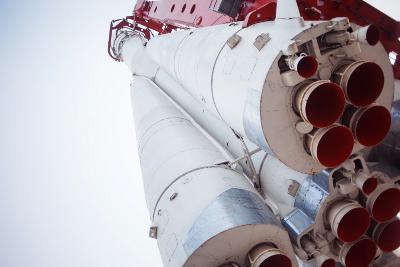Research to develop smart manufacturing processes for Space materials

OU researchers have received funding to develop smart manufacturing processes for Space materials.
Dr Richard Moat, Senior Lecturer in the OU’s Faculty of Science, Technology, Engineering and Mathematics, has received £94,000 from Research England’s SPRINT programme, to work with Stress-space Ltd.
Preventing material fatigue
The project aims to deliver best practice guidance for the acquisition of high-quality residual stress data required to develop future smart manufacturing processes for the Space sector. A reliable understanding of residual stress aids Space design and allows manufacturing engineers to work to prevent fatigue failures and meet stringent fracture control requirements, for example during the loading phase of hazardous spacecraft propellant tanks.
SPRINT is the SPace Research and Innovation Network for Technology, a unique partnership of top UK Space universities, industry, government agencies and the investment community dedicated to supporting the growth of small to medium enterprises (SMEs) in the UK through the commercial exploitation of Space data and technologies.
Addressing residual stress and cracks
“3D-printing is an increasingly important technology for Space applications, because it can be used for fabricating bespoke small complex geometry components. It is also far more cost and energy effective to send raw materials into space in a compact form" said Dr Moat. “However, effective implementation of Additive Manufacturing (AM) technology used to create these components is currently hampered by high levels of residual stress and cracks in the final products.”
New robotic system for mapping stresses
Over a nine-month period, the SPRINT Project will exploit the capability of a new adaptive X-Ray diffraction robotic system for mapping “in-situ” surface residual stresses of additive manufactured components with complex shapes.
Dr Moat said: “The enhanced Adaptive X-Raybot System based at Stress-space Ltd for residual stress characterisation will be a “first of its kind” machine that is truly “portable” and capable of in-situ mapping of stresses over complex geometry surfaces of 3-D printed components post manufacture or anywhere on-site. It will have widespread application within the Additive Manufacturing sector - it is estimated that the UK could capture over £3.5 billion per year (GVA) by 2025 of the worldwide market for AM products and services. It will also be exploited to optimise other advanced manufacturing processes. “
Find out more about SPRINT
Quarterly Review of Research
Read our Quarterly Review of Research to learn about our latest quality academic output.

Contact our news team
For all out of hours enquiries, please telephone +44 (0)7901 515891
News & articles
- Shaping a sustainable future – the power of Open Research 24th April 2024
- New research into Pompeii to be revealed by OU/BBC co-production 12th April 2024
- OU research among UK funding boost for international space projects 8th April 2024
